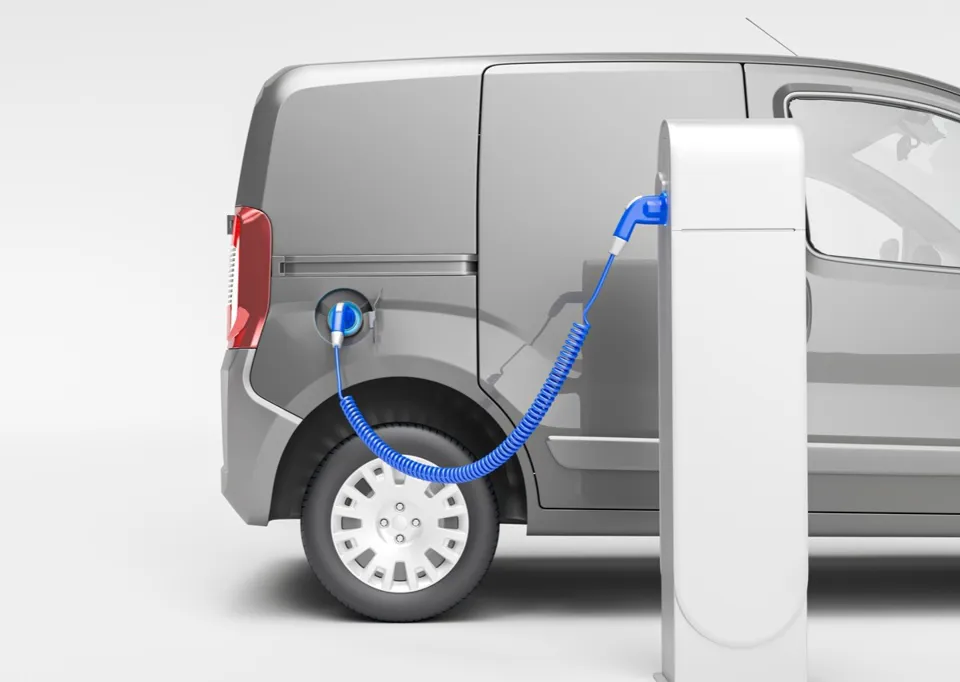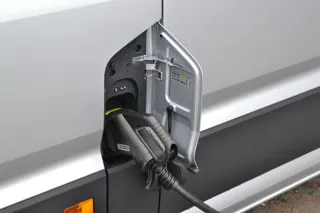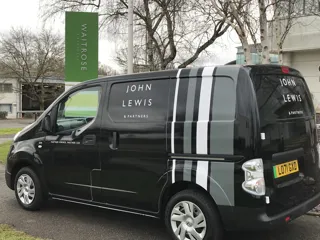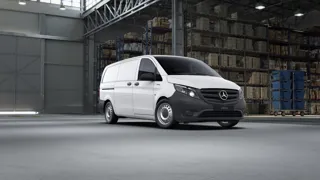The transition to an electric van fleet will require “better” fleet management software, according to UFODrive founder Aidan McClean.
Research from the Society of Motor Manufacturers and Traders (SMMT) shows that more than half (57%) of van users are worried about finding chargepoints, but McClean believes effective fleet management software holds the key to a seamless transition.
He said: “Range anxiety is a clearly an issue that needs tackling – in delivery fleets and individuals’ cars. The fear of being left immobile, stranded, and unable to charge your battery is a common and emotive one. However, this conversation is being had – and more chargers are being added all the time.
“Of course, each new charger helps; we need far more and we need to see and access them along any given route - but the truth is that chargers will never be as convenient as a petrol pump; particularly for a courier with a busy schedule to keep.
“A more pressing issue in my mind is the lack of fleet management software that is truly effective. If we had this, needing to find a charger on the daily route would be an anomaly, like breaking down, and not the norm.
“Whether it’s setting an accurate and up-to-date route for your specific range, time frame and the types of chargers you might need, or accessing real-time data about which chargers are available and functioning; easy to use software and real-time data plays an essential role in simplifying access to charging infrastructure and easing the concerns of drivers.
“This is where the latest software is essential to the ‘behind the scenes’ work at every depot, bay or headquarters.
"Fleet managers need to know that their charging schedule is optimised – balancing maximum charge for each vehicle, against each vehicle’s requirements, against the requirements of other vehicles that may have a busier schedule tomorrow and need that extra time charging.
"Furthermore, this all has to be balanced against long-term battery health – as fleet managers will want to know their batteries, and therefore the vehicle, will last.
“With effective software, EVs can be as effective as combustion engine vehicles – but like charging your phone at night, it needs a proper routine and a new mindset for both managers and drivers.
"With this, EVs will not just be possible, they will also be cost-effective and practical.”
Electric van uptake has doubled in the past year, the market is still around two years behind that of cars, prompting the SMMT to call for a ‘Van Plan’ by the UK Government to aid the transition.
Persuading van drivers to switch to zero emission vehicles is seen as “essential” if Britain is to become net zero and meet its climate commitments. Vans directly support around one in 10 workers in Britain, particularly in sectors such as construction and industry, trades such as plumbers, and home delivery services which grew rapidly during the pandemic.
With more than four million vans on the road, electrifying vans is an essential part of the UK’s climate action, and substantially reduce carbon emissions, while also delivering cleaner air in cities.
> Interested in comparing electric vehicle data? Check out our EV tool.
> Interested in ensuring the efficient use of EVs. Check out our dedicated editorial sections: Insight & policy | EV news | Charging & infrastructure | Costs & incentives | Benefit-in-kind | EV case studies | EV road tests
> EVs by price: lowest to highest























Login to comment
Comments
No comments have been made yet.